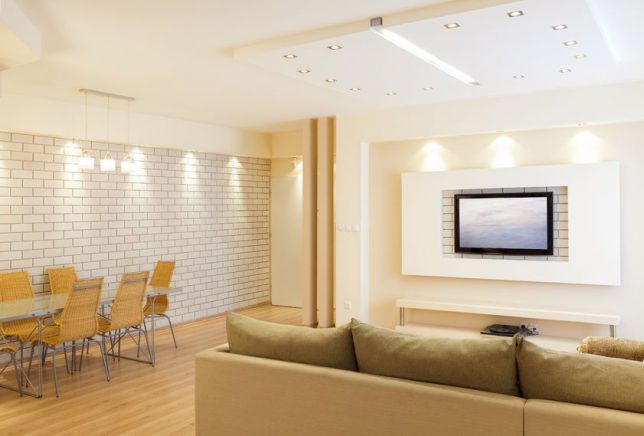
Building a room addition is usually a large investment of both money and time. Before you hire a room addition contractor or start your own DIY room addition project, consider the following tips for planning your new room.
Assess your options
Before committing to a room addition project, consider whether reconfiguring your current space makes more sense. Think about spaces you already have, such as a basement or attic, that could be finished to meet your needs for more room. Perhaps you have a room that’s very rarely used, such as a formal living or dining room, or a guest bedroom that could be repurposed on a modest budget.
Rather than add an entirely new room, such as a kitchen or master suite, you may be able to remove interior walls to incorporate adjacent spaces that aren’t often used. Even with the potential need for patching some areas of ceilings and flooring, and building new support to replace load-bearing walls, the costs would be much lower than the price of a room addition.
In any case, assess the existing footprint of your home to determine if there are better ways to utilize the space you have.
Prioritize your needs
Once you’ve decided that a room addition is the best solution for you, determine what you need from your new room. Think about what your existing space may be lacking and how your new room can provide it. Be mindful of how you use your existing rooms now and identify any problems. If you’re building a new kitchen addition, for example, you’ll want it to have a flow that matches the way you really prepare ingredients, cook and clean. For a new bathroom, consider how many family members use it and what’s most important to each of them. Starting with a clear view of what you need is a way to help ensure you end with a room addition you’ll love.
Determine who will do the work
Unless you are very skilled in construction work, a room addition is not a DIY project. There are some homeowners who decide to act as their own general contractor and supervise the work of subcontractors. Being your own contractor still requires some knowledge of materials and construction, however, plus the time and ability to find and vet all of the necessary subcontractors.
The best option for most homeowners is to hire a room addition contractor. While that will add costs to your project, your contractor will earn his or her fees by managing every aspect of your project, from obtaining permits to your final punch list.
Interview room addition contractors
Hiring a contractor may be the most important factor in your project’s ultimate success. Not only should you get multiple bids, you should vet the qualifications of any contractor that you’re seriously considering. Verify that he or she has current insurance and licensing, is in good standing with trade or professional organizations, and has references from customers who have had similar work done. Also make sure that the bids you get include details on how long the project will take, how and when payments should be made, and specifics on what is and isn’t covered by a warranty. Finding the right contractor is a time-consuming process, but one that can’t be skipped.
Save time and hassle with Contractor Connection.
We’ve simplified the process of vetting room addition contractors because we’ve already done it for you. The contractor in our network of experts have proper licensing and insurance and are fully qualified to do your project right. Their work is backed by a five-year workmanship warranty and they meet tough insurance company requirements. Hire a contractor you can trust — simply enter your ZIP code at the top of the page to get started now.
Categories: Room Additions

